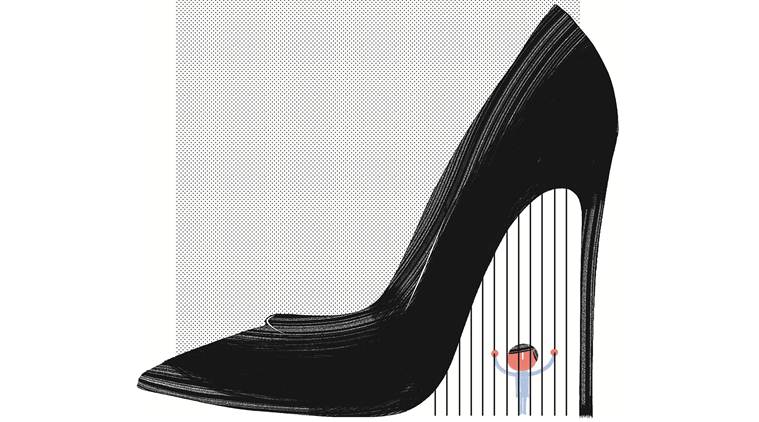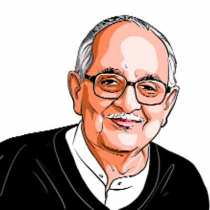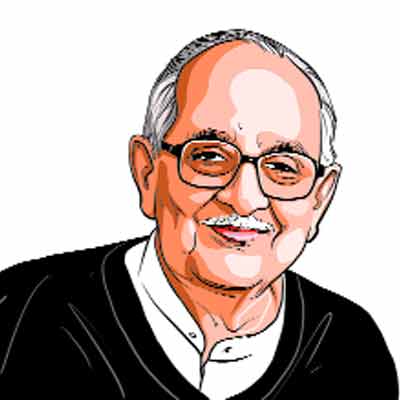Emergency Day
When repressive laws were oppressively implemented, and the people looked in vain to the courts

One-and-a half generations since June 26, 1975, we must always remember — and never forget the day. C R Sasikumar
One-and-a half generations since June 26, 1975, we must always remember — and never forget the day.
In England, because the attempt to blow up the House of Lords in 1605 was unsuccessful, they still celebrate (not condole) Guy Fawkes Day. For many years after the internal Emergency was lifted in March 1977, when elections were held, and the Congress party, under the leadership of Indira Gandhi, was swept out of office, I continued to harbour the recollection of someone (probably the then High Commissioner of Australia) telling me that he had it first hand from Indira Gandhi that it was President Jimmy Carter who had persuaded her to go legitimate, and call elections in March 1977. I mentioned this to all and sundry.
Then I repeated this story at a luncheon meeting with the judges of the Supreme Court of the United States, at one of the functions of the Indo-US Legal Forum in Washington. Justice Ruth Ginsberg, who was the host at our table, was extremely interested in this titbit of information, and asked me whether I could lay my hands on any authenticated document to support the recollection.
I enquired from my friend Granville Austin (‘Red’ Austin) in Washington, and he very kindly looked into in the Library of Congress, but found — nothing. I penned a letter of apology to Justice Ruth Ginsberg; saying that my only excuse was one given by her distinguished countryman, Mark Twain, who had written: “The older one gets the more vivid the recollection of things that have not happened.”
The judge, who is now the senior-most sitting judge in the US Supreme Court, had the courtesy to reply to my letter. Promptly. From the Chambers of Justice Ruth Bader Ginsburg, dated July 25, 1995, I get a letter.
“Dear Mr Nariman, Appreciation for your good letter of July 17, and for calling my attention to the wisdom of Mark Twain — a statement that captures my own experience at least as much as it does yours. With highest regards, Ruth Bader Ginsburg.”
So, you see more important persons than myself also recall things that have never happened! But there is something I do remember and this I must tell you with the assurance that it did happen!
A few months after I had resigned as the only Additional Solicitor General of India, on the day after the Emergency of June 26, 1975, I was witness to an incident which typified the “climate of the times” — how, in Lord Acton’s hackneyed phrase: “Power tends to corrupt, and absolute power corrupts absolutely.”
I had been invited to preside at a conference of Andhra state lawyers (to be held at Rajahmundry in August 1975) in my official capacity as a law officer of the Union of India. Justice V R Krishna Iyer, then a sitting judge of the Supreme Court of India, was to inaugurate the conference and Justice S Rangarajan, then a sitting judge of the Delhi High Court, was to accompany us. I wrote and informed the organisers about my resignation but they insisted that I come — in my private capacity as Senior Advocate. Despite the internal Emergency, about 2,000 lawyers of the state attended the conference.
When we arrived, the organiser (a senior lawyer of the district) informed us with anguish that his son, a law student at Visakhapatnam, who was to assist him in the arrangements, had been arrested just a day before we arrived, under the Maintenance of Internal Security Act (MISA). He was a conscientious student — almost obtusely so.
When his lecturer had announced in class (at Visakhapatnam) sometime at the end of July 1975 that they would all march in procession on a particular weekday in support of Prime Minister Indira Gandhi’s 20-Point Programme, he got up and said that time was better spent studying in college, and that the procession be postponed to a non-working Saturday. The rest of the students shouted him down; marching in a procession would be far more fun than attending classes!
The boy insisted and some argument ensued. Then there was a weekend recess and the boy came back to his home in Rajahmundry. And there, apparently, the matter rested.
But then, a district magistrate in whom wide powers of detention were conferred, chose to exercise them when he heard of this “misdemeanour”. He promptly issued an order of detention on the ground that the boy was a “danger to the security of the State”. The order of detention was served at the boy’s home in Rajahmundry from where he was whisked off in the dark hours of the night!
Fortunately, the then law minister of Andhra Pradesh, one Mr Pasha, was one of the principal guests at the conference, and some of us requested him to personally look into the matter, which he graciously did. The order of detention was revoked a few days later. But then, more anguish for his parents! The boy could not be located. No one knew where he was put away. He was ultimately found after three weeks of intense searching, in some jail in a remote part of the state, and finally (after many more anxious moments) returned to his parents.
No one in Delhi instructed the district magistrate to act as he did. In fact, South Block would have been aghast at such irresponsible behaviour.
But the point of this true story is that once laws are passed which enable officials to act irresponsibly, then in this country (and possibly in other countries as well) they will act — with hobnailed boots!
With such repressive laws, so oppressively implemented, the people looked up to the courts. But alas, as it ultimately turned out — and this is only too well known — they looked in vain.
The writer is a constitutional jurist and senior advocate
For all the latest Opinion News, download Indian Express App
More From Fali S Nariman
- India needs a coalitionOnly when Parliament and politics are no longer dominated by one single political party, will India become a country where all points of view will…
- Like Atal, Advani, SomnathExcerpts from a speech to new parliamentarians, July 31..
- Vice President Hamid Ansari’s secularism remarks: Say it againVP Ansari’s remarks on the need to protect minority rights have been made before. But they bear repeating...








































No hay comentarios:
Publicar un comentario